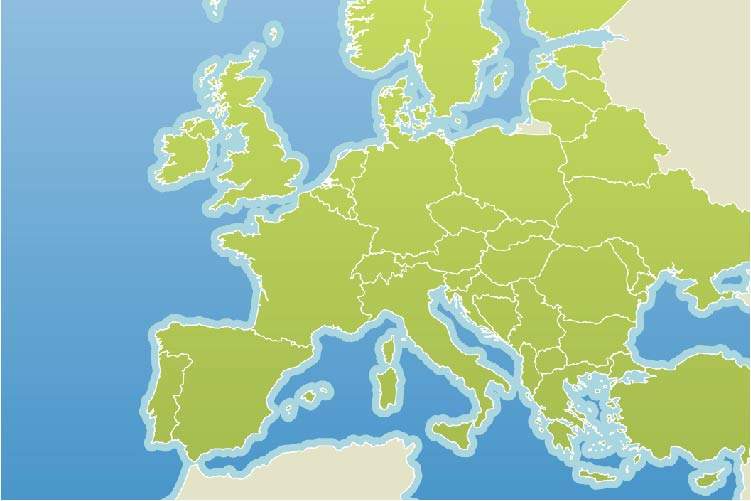
As uncertainty about the post-Brexit landscape continues to be a major concern for financial institutions, Luxembourg is marketing itself as the financial services hub for banks and wealth managers seeking an EU base. Saloni Sardana examines what Luxembourg is doing to make itself to make itself more attractive to potential newcomers.
In October 2017, US-based Citi Private Bank announced it would open a booking centre for its European private banking operations in Luxembourg after Brexit.
Swiss Private Bank Julius Baer also said it would manage its private banking accounts from Luxembourg. It previously managed it from Frankfurt.
JPMorgan is working on a EU merger, which would then see its UK wealth management arm become a branch of its new EU parent.
This will reportedly entail moving about 1000 London-based banking jobs, European countries such as Luxembourg, Dublin and Frankfurt.
So what makes Luxembourg such an attractive location for private banks?
“One Stop-Shop”
Tom Theobald deputy-CEO at Luxembourg for Finance (LFF) –which has the objective of developing Luxembourg’s financial services industry and identify new business opportunities – stresses Luxembourg’s stability and its attractiveness for Chinese investments. : “About 60% of all EU funds investing in China are all Luxembourg funds. We are the mainland fund centre for Chinese investments after Hong Kong.”
“It is great to have your assets also from a stability purpose in a country that is triple AAA rated as it gives security. We see a trend of clients moving to having part their assets in a stable jurisdiction.”
Alain Hondequin, general counsel of business clusters, at the Luxembourg Bankers’ Association (ABBL) comments: “Luxembourg brings the convenience of a ‘one-stop-shop’ where you find all the expertise available here in Luxembourg and they will speak your language. Whether it is in German, French, Dutch, English or even a number of other less common languages.”
Hondequin adds: “Banks have over the years developed an offering that caters to the needs of clients and residents from numerous countries within the EU and beyond and even outside of the EU. And that cross border expertise of structuring assets for preservation of wealth and transmission of wealth is an expertise that we have gathered over the years.”
Multi-disciplinary teams
Theobald identifies multi-disciplinary teams as a key success of Luxembourg’s private banking industry.
Theobald says: “It is no longer that you just have a relationship manager and a client. We see more and more reliance on multi-disciplinary teams. You have a lot of experts that you need to source in and pool in from other parts of the private bank to deal with the same client.”
Theobald continues: “That is how the private banking industry in Luxembourg operates and has positioned itself is ‘one-stop-shop’ for clients.”
Transparency
Both Theobald and Hondequin note a shift in Luxembourg’s clientele with more HNW and UHNW clients coming to Luxembourg and a fall in the number of affluent clients.
This is due to a number of regulations that facilitated Luxembourg to push towards transparency.
Luxembourg announced in 2014 announced it would abandon its policy of tax-secrecy and comply with an initiative led by the Organisation for Economic Development and Cooperation (OECD) paving the way for an automatic annual exchange of bank information between governments in 2017.
That measure, together with a number of tax amnesties in neighbouring countries meant an outflow of mass affluent clients. PBI understands that the increased transparency measures meant clients with less wealth felt less incentive to be in Luxembourg if neighbouring countries were declaring tax amnesties. But the UHNW and HNW clientele were less worried to subject to greater scrutiny and their decision to bank in Luxembourg depended on many other factors, such as Luxembourg’s advantages.
Simultaneously, Luxembourg has attracted a number of UHNW clients, significantly increasing the country’s AuM from private banking activity.
Hondequin says: “We now cater for a reduced number of clients. We lost quite a few clients, [who are] mostly affluent. We now cater for more HNW or UHNW individuals and not just neighbouring countries.”
The survey shows people with a net wealth in excess of €20m now account for more than half of all assets managed by Luxembourg private banks at the end of 2016.
The number of clients with assets of less than €500,000 continues to decrease to a point where in 2016, the segment represents 12% of total AuM.
Brexit
Theobald predicts that at least 3000 new jobs will be created in Luxembourg’s financial services industry over the next three years.
He adds: “But how much of that will be jobs created in Luxembourg and how many of that will be jobs that have moved to Luxembourg is difficult to say.”
Theobald he warns that Luxembourg may face challenges from countries like Switzerland which already has a “blue print” model of serving the financial institutions, without being in the EU itself.
“All the Swiss banks have their EU hub here for asset management and for wealth management or custody. They already have a model of a country that is in Europe, it is not within the Single Market and that needs a second leg outside of its home country.”
Hondequin says: “If private banks are only based in Luxembourg it will then be very difficult for them to serve UK clients as such a bank would probably have to apply for a licence in the UK and would have to evaluate how financial products can be distributed in the UK and what that entails.”
Talent acquisition
Theobald comments: The biggest challenge facing Luxembourg’s private banking industry is talent. When you see new clients and different types of clients, you also see different types of people who serve these clients.”
“There is a clear demand for advisers, people that deal with these clients. It is clearly an opportunity, but it is also a challenge. You have an industry that is changing, that is shifting that is adapting.”
Theobald says the ABBL is currently involved in attracting talent from abroad, as international clients would likely want to be served by client advisers who have more international profiles.
The other is retraining and creating professional certifications for private bankers.
Hondequin comments: “The key element to ensure sustainable growth for private banks, perhaps not just in Luxembourg, is innovation. They absolutely need to innovate in particular on the way they interact with clients.
Hondequin adds: Not only through developing their digital channels, but also looking how they interact through their distribution channels and they need to improve on reporting and clearing.”
On the topic of blockchain, Hondequin says: “The technology of blockchain is of interest to private banks and as an association we are currently involved in a research project with the University of Luxembourg for the development of blockchain. We have not seen any material interest of private banks in Luxembourg to provide cryptocurrencies to their clients.
“I do not see private banks as being the first beneficiaries of blockchain technology.”
“It is logical for any HNW or UHNW to want to open a private banking account in Luxembourg. Having a stable political landscape, coupled with multilingual expertise gives the right setting to serve clients with very international profiles.”
While Brexit has been regarded mostly as an opportunity that the Grand Duchy is ready to seize, it may not necessarily be a smooth path.
As Theobald points out Switzerland is already equipped to be outside of the Single Market and serve financial institutions. Private banks moving operations from the UK to European destinations, namely Luxembourg, could possibly see more commercial sense in moving operations to Switzerland for this purpose.
Private banking AuM in Luxembourg has risen by 35% in 2017 compared to financial crisis levels in 2008. In 2017 AuM was €361bn, three percent higher than the previous year according to a 2017 survey by Luxembourg Bankers Association (ABBL).







